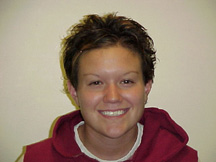Women’s History Month: lacking the liberal arts

April 11, 2002
Now that Women’s History Month has come and gone, it is time that we reflect on what we have learned.
More important than our new understanding of feminism, female genital mutilation, or emotional control during negotiation, should be our vision for the future of Women’s History Month itself.
While this year’s forums were informational, interesting, and at times, ironically, entertaining, they lacked something. They lacked the intellectual discourse and diverse disciplinary discussion that only a Liberal Arts look at Women’s History can bring.
So, to the organizers of next year’s Women’s History Month events, here are five suggestions.
First, let us show the Simpson Community, male and female alike, how female scholars look and speak-essentially, that they actually do exist. Female philosophers, mathematicians, theologists, athletes, politicians, artists, poets, and literary critics-now, surely this would spur some interesting and insightful intellectual growth. Let us focus on how gender differences can create unique and helpful perspectives within the world of academia and beyond.
Second, let us broaden our horizons by seeking diverse and contrasting opinions. Feminism from the perspective of white, European-American women is only one type of feminism. Within various cultures, women’s struggles with oppression or discrimination take very different forms-so do their reactions and solutions to such problems. It is ethnocentric and academically insufficient only to consider one cultural or theological viewpoint of a topic of such universal importance.
Third, let us explore the issue as it pertains to government, policy, and economics. Why discuss gender if we are going to ignore the structures of society that inherently marginalize women and minorities alike? We need to face the facts that, while changing attitudes is a valiant effort, improving policy is the only real and measurable way in which we can see and feel changes in biases and sexist attitudes.
Fourth, let us participate in activism. Let us show young women how activism can, and should, take place everyday within personal lives, while also opening students to the world of advocacy and activism that seems just beyond our reach. Why not organize volunteer opportunities for the women and men of Simpson to participate in together to see how they can help the women in and around their communities? Civic duty is a perfect example of an area in which women can feel the results of their efforts-it can be extremely empowering.
Fifth, let us contribute to the formation and celebration of a wonderfully successful Women’s History Month. Let students get involved in setting the agenda for next year’s speakers and activities. Let us celebrate the great perspective and insight that only being a woman provides. Let us share our talents, our research, ourselves. Why shouldn’t women debate, present, or write on the important issues at hand?
Overall, Women’s History Month should not just revel in the ways that women have been defeated by the patriarchal society in which we live. Nor should it try to overcome our tragically assumed nature of acting as if we were children in professional settings. The focus should be on celebrating our accomplishments in the past and expanding our capacities for excellence in the future.












